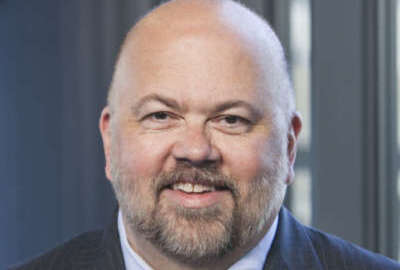
Life after lockdown: New spouse, new career, status quo?
Now that more states and jurisdictions are easing social distancing rules, millions of people are stumbling back to pre-COVID-19 normalcy - if you can remember...
Now that more states and jurisdictions are easing social distancing rules, millions of people are stumbling back to pre-COVID-19 normalcy – if you can remember what that was like.
People who have been working from home will head back to the office, including tens of thousands of IRS workers who face a massive backlog of snail mail from taxpayers still waiting for refunds.
Courts which have been idled by the virus are getting back to speed. Social scientists say that among things they will be hit with a massive backlog of divorce cases from long-married couples who, after months of total togetherness, want out.
The 40 million Americans who lost their jobs and applied for unemployment benefits will, in many cases, be looking for jobs that in future will provide them with what they either lost, or never had, in the private sector. A steady paycheck, freedom from furloughs or pay cuts and defined benefit pensions paid for in whole or part by their employers. So what about you?
As federal/postal workers many of you are bona fide essential workers (while the term “heroes” is often overused, in your case it’s true) who kept your jobs. Many had to be on the front-line but a record number of people were allowed to work from home.
Some retirees, maybe a lot of them, may decide either they are wanted and needed back in the workforce. Both to do good and make more money
For many feds, whether long-time or relatively new, the question is: What now?
Now, naturally, we turn to Tammy Flanagan. She’s an expert on federal benefits with the emphasis on planning for the best possible retirement from Uncle Sam. Her husband is retired Secret Service so she knows about retirement for law enforcement officers, too.
Will the “new” post-pandemic, civil service be hit with a wave of retirements, the long-predicted retirement Tsunami at last, opening up the promotion pipeline? Many think thousands of long-serving (suffering) feds will bail out, deciding they want to spend their golden years on the beach instead of in a bunker. Or will folks who were considering retirement decide to delay pulling the plug. That could be especially true of the economic downside of the pandemic (which could last years) bring with it low inflation which means fewer and or smaller cost of living adjustments for federal retirees?
So what’s your next career move? Tammy will be my guest today at 10 a.m. EDT on our Your Turn radio show. You can listen live at www.federalnewsnetwork.com, or 1500 AM in the Washington, D.C. area. Or, the show will be archived on our home page so you can listen later and/or pass it on to a friend or coworker.
If you have questions for her, please send them to me before showtime at mcausey@federalnewssnetwork.com. Here are some of the things we’ll be talking about:
Retirement planning during the pandemic
- Has retirement processing been affected? How long might you have to wait for your first full annuity payment?
- How does the CARES Act impact the TSP?
- What should you not be doing with your TSP?
- What should you be doing to prepare for retirement?
- Virtual training events
- Social Security offices are now accessible by phone — no need to wait in line at the local office!
- Do you have a retirement estimate? Do you know how to get one?
- Do you know how to estimate your “net” retirement income?
- Have you started to think about your expenses in retirement?
- Do you have sufficient cash reserves for emergencies?
- Have you started to contemplate life after retirement … quarantine has provided some insight, maybe?
Nearly Useless Factoid
By Amelia Brust
Not only did Garrett Morgan invent the traffic signal — he also invented a hair straightener, a precursor for the gas mask and an improved sewing machine. But due to his race, in 1914 he hired a white actor to pretend to be the inventor of the breathing apparatus during demonstrations to buyers while Morgan posed as the “sidekick.” It worked, and many rescue workers bought the device.
Source: Biography.com
Copyright © 2024 Federal News Network. All rights reserved. This website is not intended for users located within the European Economic Area.
Mike Causey is senior correspondent for Federal News Network and writes his daily Federal Report column on federal employees’ pay, benefits and retirement.
Follow @mcauseyWFED





